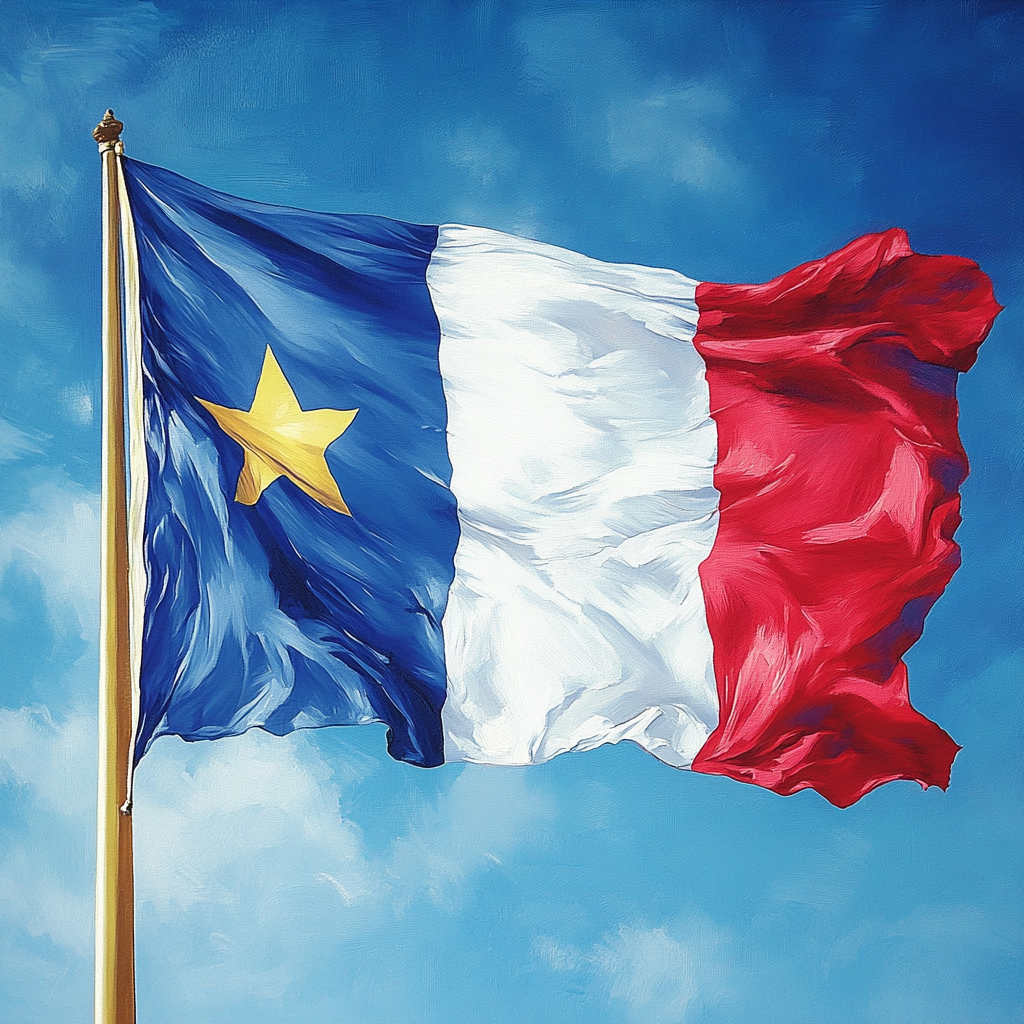Origins and Colonization
The history of the Acadians began in the early 17th century with the first attempts at French colonization in North America. In 1604, Pierre Dugua de Mons and Samuel de Champlain established the first colony in Acadia, a region that today corresponds to eastern Canada, mainly in Nova Scotia and New Brunswick. The name “Acadia” was first used by explorer Giovanni da Verrazzano in 1524, and it may have Indigenous origins, deriving from terms meaning ‘camp’ or “fertile land” [3][5].
Conflicts and the Great Upheaval
Acadia was the scene of numerous conflicts between France and Great Britain, changing hands several times until the Treaty of Utrecht in 1713 definitively ceded Acadia to the British. The Acadians, refusing to swear unconditional allegiance to the British Crown, were deported en masse during the Great Upheaval of 1755 to 1764. More than 10,000 Acadians were expelled, and many perished or were scattered across several regions, notably along the east coast of the United States, in Louisiana, Quebec, France, and even the West Indies (Martinique, Guadeloupe, Saint Lucia). This dispersion led to the formation of various Acadian communities around the world, each developing its own cultural characteristics while retaining elements of the original Acadian identity.[1][3][4][6].
Acadian Renaissance
Despite the difficulties they faced, the Acadians gradually managed to rebuild their community. After their dispersion, a number of them returned to Acadia. A period of Acadian renaissance between 1850 and 1881 was marked by the emergence of a middle class and the creation of Acadian institutions, such as the Collège Saint-Joseph, founded in 1864. In 1881, at the first Acadian National Convention, August 15 was chosen as the Acadian national holiday, in honor of Our Lady of the Assumption[2][3][4].
Acadian Culture
Some excerpts from Acadian music
Festivals and Events
The Clare Acadian Festival is the oldest Acadian festival, celebrating Acadian culture and heritage since 1955. It takes place mainly in the Bay of St. Mary’s region of Nova Scotia, where the Acadian community is the largest in the province. Each year, in early August, this event attracts thousands of visitors who come to enjoy musical performances, parades, and participate in a variety of cultural activities. The festival concludes with a grand tintamarre on August 15, Acadian National Day, celebrated with enthusiasm by participants [1][2].
The Festival Acadien de Caraquet (in New Brunswick), also known as “Quinzou,” is another major cultural event for Acadians. It celebrates Acadian culture through performances, parades, and community activities.
In 2024, the World Acadian Congress was held from August 10 to 18. This event brought together not only Acadian communities from around the world, but also Francophones and Francophiles. The congress was a unique opportunity to celebrate Acadian identity through cultural exchanges, conferences, and festivities that highlighted the richness of Acadian culture and its influence on an international scale [2][3].
Some traditional Acadian dishes
- Fricot: A stew often made with meat and vegetables, typically served with potatoes.
- Meat stew: A comforting dish made with meat simmered with vegetables.
- Cod cakes: Cakes made from salted cod, often mixed with potatoes and spices.
- Cod with cream: A creamy dish made with dried cod, often served with vegetables.
- Râpure: A rustic tart made with grated potatoes, topped with meat, and baked in the oven.
These dishes reflect the richness and diversity of Acadian cuisine, which continues to evolve while remaining rooted in its traditions.
In conclusion, the history of the Acadians is marked by resilience in the face of adversity and an unwavering determination to preserve their culture and identity. Acadian events and symbols bear witness to this rich history and the vitality of their community today.
Other references:
[1] https://genealogieroy.ca/Livres/LesAcadiens.pdf
[2] https://www.thecanadianencyclopedia.ca/fr/article/culture-de-lacadie
[3] https://www.thecanadianencyclopedia.ca/fr/article/histoire-de-lacadie
[4] https://www.erudit.org/fr/revues/acadiensis/2011-v40-n2-acad_40_2/acad40_2art02/
[5] https://snacadie.org/a-propos/l-acadie
[6] https://www.axl.cefan.ulaval.ca/francophonie/Acadiens-dispersion.htm

